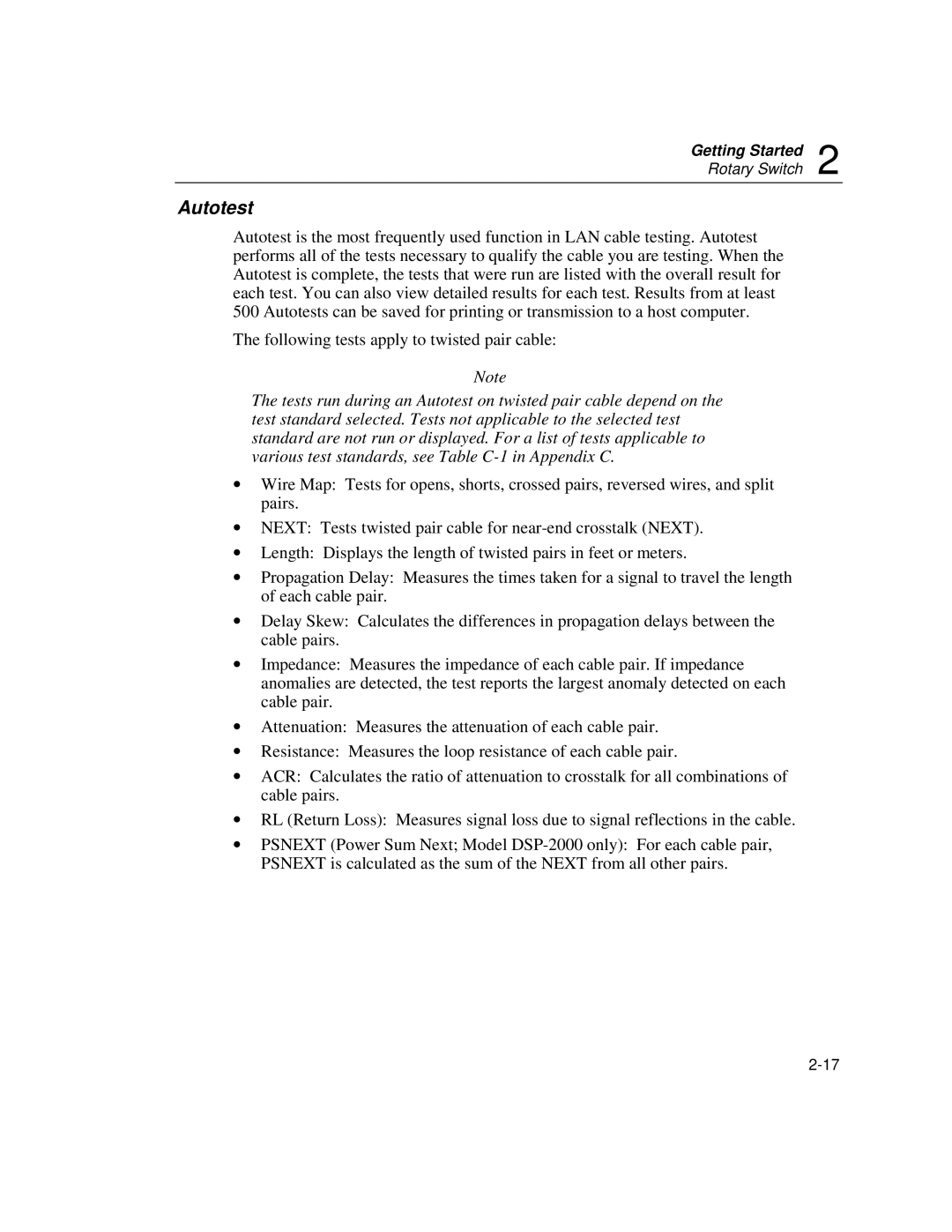Getting Started 2
Rotary Switch
Autotest
Autotest is the most frequently used function in LAN cable testing. Autotest performs all of the tests necessary to qualify the cable you are testing. When the Autotest is complete, the tests that were run are listed with the overall result for each test. You can also view detailed results for each test. Results from at least 500 Autotests can be saved for printing or transmission to a host computer.
The following tests apply to twisted pair cable:
Note
The tests run during an Autotest on twisted pair cable depend on the test standard selected. Tests not applicable to the selected test standard are not run or displayed. For a list of tests applicable to various test standards, see Table
∙Wire Map: Tests for opens, shorts, crossed pairs, reversed wires, and split pairs.
∙NEXT: Tests twisted pair cable for
∙Length: Displays the length of twisted pairs in feet or meters.
∙Propagation Delay: Measures the times taken for a signal to travel the length of each cable pair.
∙Delay Skew: Calculates the differences in propagation delays between the cable pairs.
∙Impedance: Measures the impedance of each cable pair. If impedance anomalies are detected, the test reports the largest anomaly detected on each cable pair.
∙Attenuation: Measures the attenuation of each cable pair.
∙Resistance: Measures the loop resistance of each cable pair.
∙ACR: Calculates the ratio of attenuation to crosstalk for all combinations of cable pairs.
∙RL (Return Loss): Measures signal loss due to signal reflections in the cable.
∙PSNEXT (Power Sum Next; Model
